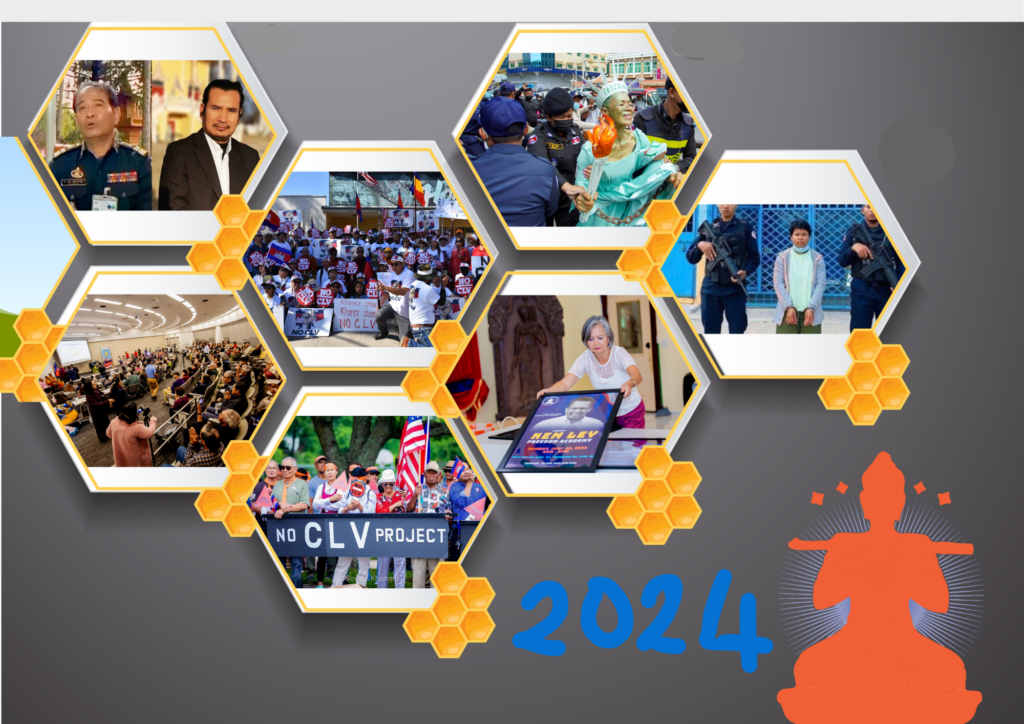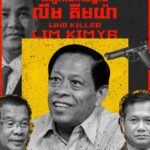The Khmer Movement for Democracy (KMD) enters its first full year in 2025 on the back of rapid impacts since its launch in March 2024.

We are a voice for democracy in the global Cambodian diaspora, which totals about 2 million people. We continue the struggle for democracy and human rights which has become impossible inside Cambodia due to the repressive Hun family regime.
Our strength is building unity among the Cambodian communities outside of the country, and speaking for those inside Cambodia whose voice has been taken away, where civil society organizations and independent media are under close monitoring of the state apparatus.
We highlight and campaign on issues such as Cambodia’s political prisoners, one of whom is Theary Seng, a Cambodian-American lawyer, land grabs and forced evictions that affect close to a million women, men and children. Our public forums bring the diaspora together and build our pool of knowledge and contacts, engaging people in public debates to find solution to restore democracy in Cambodia.
“A country which is as poor as Cambodia cannot afford to divorce from its diaspora. In 2022, migrant workers sent up to $1.25 billion to their families back home,” said KMD president Mu Sochua. “The skills and knowledge accumulated in the diaspora are essential assets in creating a better Cambodia.”
The KMD ensures that people inside Cambodia understand that the struggle for democracy has not been forgotten. We are able to communicate with and carry out activities inside Cambodia, by finding secure ways to protect the safety and security of our networks.
We have had major impacts in our short life. The Cambodia-Laos-Vietnam Development Triangle Area (CLV-DTA), an agreement which has been fiercely resented by the Cambodian people, has been in place since 2004. Our peaceful protests led to the government ending its participation in the CLV-DTA in September.
“The CLV-DTA was simply a cover allowing Vietnam to exploit Cambodian natural resources,” said Um San An, an elected member of parliament for the banned Cambodia National Rescue Party, and a former political prisoner. “Those inside Cambodia who opposed the CLV-DTA are still in prison and must be released.”
We have established The Kem Ley Freedom Academy (KLFA) in memory of Kem Ley, who was assassinated in 2016 for his criticism of the Hun regime. The academy prepares a select group of Cambodians and first-generation born Cambodian-Americans for leadership and the advancement of democracy. Thirty young potential future leaders have been chosen to participate in academy training. They come from diverse backgrounds, and include migrant workers, students and refugees.
“The KLFA equips us with knowledge and skills, and instills confidencein our ability to communicate,” said academy scholar Leng Chenda.“Kem Ley was assassinated, but they cannot stop us from upholding his democratic principles and values.”
In October, we organized a side event at the UN Human Rights Council and made a series of recommendations on the implementation of the 1991 Paris Peace Agreements on Cambodia for the protection of human rights and free and fair elections.
We have also raised issues such as transnational repression in a series of hard-hitting op eds in the international media. “Cambodians both at home and in the diaspora must be free to debate the future of our country without fear of reprisals,” said Sorn Dara, a political refugee in France whose father has been arrested in Cambodia in an attempt to silence his criticism. “Our country will never be able to move forward until the government has public accountability.”
Sorn Dara’s case is just one recent instance of transnational repression. Vanna Hay, a Japan-based Cambodian opponent of the regime, was forced by the arrest of his brother in Cambodia to switch allegiance to the ruling party. Other countries in the region have acted in complicity with Hun Sen’s crackdown. Malaysia in September deported Nuon Toeun, a domestic worker, simply for criticizing Hun Sen on Facebook. Thailand in November breached domestic and international law by forcibly deporting six Cambodian dissidents.
Your Support
A KMD priority for 2025 will be building capacity among Khmer women and young people to become leading future voices in a democratic Cambodia. We will continue the campaign for the release of all of Cambodia’s political prisoners, and lobby for the international community to make trade with Cambodia conditional on progress in human rights. We are working with NGOs and associations outside Cambodia to strengthen our network and are seeking to partner with Cambodian NGOs and youth movements globally.
We are very grateful to the wide range of people who have supported the KMD in a diverse variety of ways. Generating funding enables us to accelerate in pursuit of our goals. If you are willing to help support the KMD, you can do so here.

